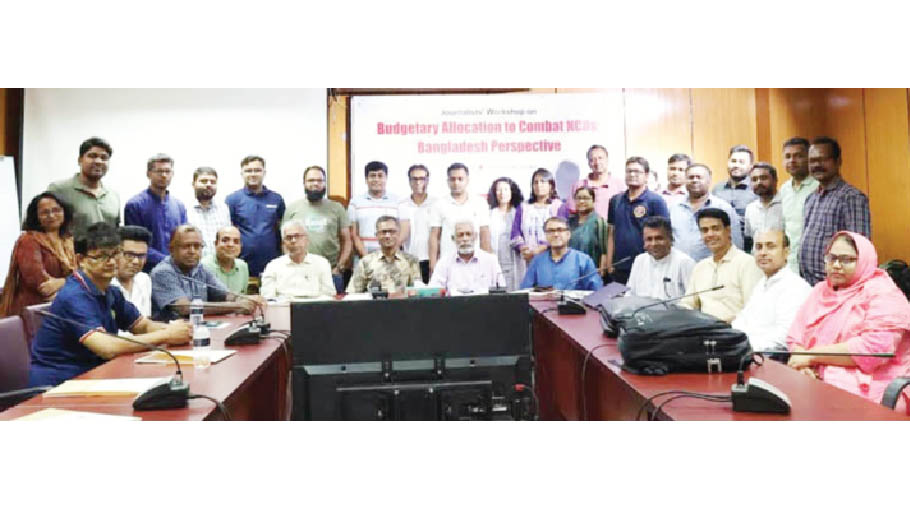Call for increasing budgetary allocation to tackle non-communicable diseases

Speakers at a workshop on Monday emphasized the critical need for sufficient funding in the national budget for the fiscal year 2024-25 to effectively tackle the escalating prevalence of non-communicable diseases (NCDs), the leading causes of death in Bangladesh.
They said that NCDs, including heart diseases, stroke, cancer, kidney diseases, respiratory diseases, diabetes, and hypertension, collectively account for a staggering 70% of the nation's total mortalities.
However, the experts bemoaned that the budgetary allocation for combating NCDs is alarmingly low, clocking just 4.2 percent of the total health budget - which itself is held to be an inadequate proportion of the overall budget, in view of all the challenges that present themselves in the sector.
Research and advocacy organisation Progga (the name is derived from the Bangla acronym for Knowledge for Progress), with support from Global Health Advocacy Incubator (GHAI) arranged the workshop for journalists titled “Budgetary Allocation to Combat NCDs: Bangladesh Perspective” at the capital’s BMA Bhaban.
Twenty-eight journalists working in print, television and online media participated in the workshop.
Dr Md Enamul Haque, Director General (Additional Secretary) of the Health Economics Unit at the Health Services Division, said the World Health Organization recommends countries allocate at least 15% of their total budget to the health sector.
Considering the practical context, he mentioned that the latest strategic investment plan of the Bangladesh government suggests increasing the budgetary allocation in the health sector to 7%.
Prominent journalist Julhas Alam, AP bureau chief in Dhaka and managing committee member of the National Press Club, Mortuza Haider Liton, convenor of the Anti-Tobacco Media Alliance (ATMA), Mizan Chowdhury, co-convenor of ATMA, and ABM Zubair, executive director of PROGGA, were present at the workshop as discussants.




